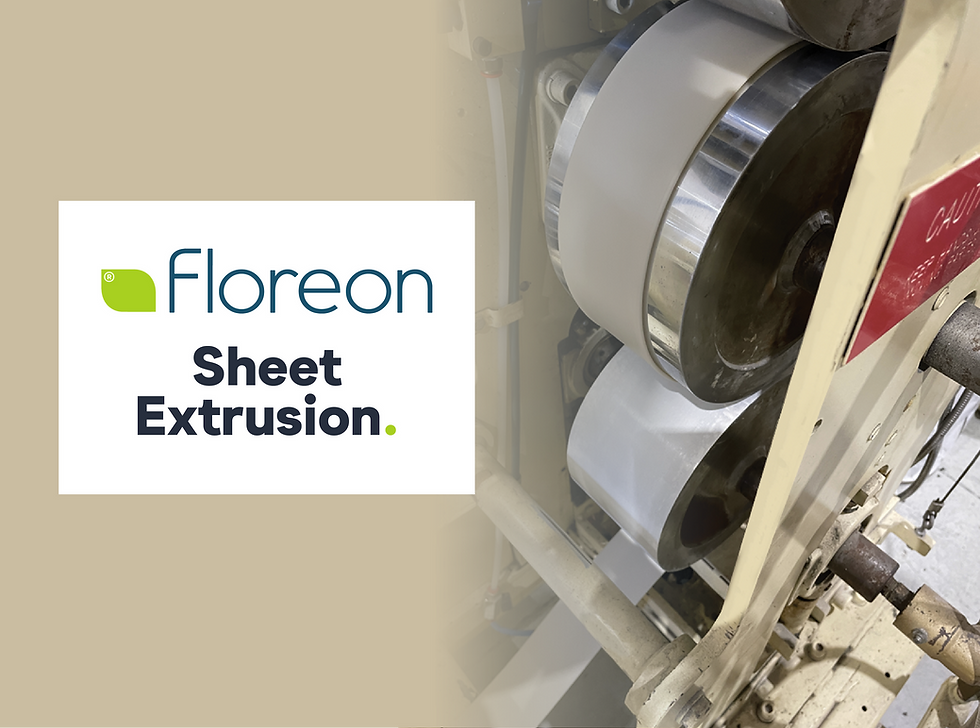Three Ways Towards More Sustainable Consumer Electronics
- alison0575
- Oct 10, 2022
- 3 min read
Updated: Oct 12, 2022
The electronics industry is facing a new and demanding challenge from consumers - how to balance increasing volumes of electronic based products but delivering product with a better carbon footprint and therefore helping the climate crisis that we are in?

Overcoming this challenge calls for sustainable approaches and NEW materials.
The global consumption of electronics is forecast to double by 2050 according to a report * .The volume of electronic waste is also growing at a rate of 6.5% every year, and only 20% of the waste is recycled efficiently. The European Commission's Circular Economy Action Plan identifies electronics and ICT as one of the key value chains.
A balance must be found between the growth of the electronics industry, resources and environmental targets in order to ensure the availability of supplies in the future and to stop us from drowning in electronic waste and products that can not be recycled and use excessive amounts of oil based plastic.
We believe that these three solutions could revolutionise the electronics industry...in an ideal world all consumer electronics should be made of Floreon bioplastic:
* From the Platform for Accelerating the Circular Economy (PACE) and the UN E-Waste Coalition
1. Eco product design
Environmental targets need to be incorporated into the design process and technical specifications for products throughout their lifecycle. Your products ecodesign should include, among others; energy efficiency, material efficiency, flexible and long product lifecycles and the recyclability of the materials used. Ideally your range of products need to be designed in a way that allows each component to be separated at any stage of the process and recycled easily. Floreon is made from natural resources minimising carbon emissions and is halogen free, Floreon can be recycled at its end of life plus compostable grades are also available depending on use.
2. Sustainable choices of raw materials
The electronics industry needs to start using more raw materials that are based on renewable natural resources, such as Floreon. Floreon is a unique, plant based high performance material that can be substituted for oil based plastics. Floreon has a UL94V fire resistance rating, which means it can be used safely in demanding applications such as home appliances and electronics. By choosing Floreon the plastic in your appliance will have up to 7 times better carbon footprint from the offset. There is also no performance loss and no problems with colour matching your brands specific colour, as a drop-in solution there is no disruption in your manufacturing process, it is an easy material switch for the better.
3. Better end of life options
Oil based plastics if burned or incinerated will release NEW fossil carbon into the atmosphere contributing to climate change; in contrast Floreon is a plant based plastic, so all of the carbon in this bioplastic has already been sequestered from the atmosphere. So if the product is not recycled for any reason but is then unfortunately burnt no more fossil carbon is released into the atmosphere.
The best option is to recycle Floreon through either mechanically or chemically means. End of life recycling streams are in their infancy for collecting bioplastics from consumers but in reflection recycling of oil based plastics is not perfect and can be difficult; many oil based plastics can not be recycled due to added performance modifiers and additives that can not be recycled into a usable plastic, meaning the waste is either burnt or goes into landfill.
Want to know more on how to switch from oil based plastic to Floreon?
At Floreon, we are transforming the production of plastics by providing alternative sustainable solutions to oil-based plastics to help combat the ever-growing climate crisis.
Floreon can match the performance of ABS with no compromise. Reaching that goal is why we established Floreon in the first place. We saw the potential beyond 3D printing filament. We envisaged a future where products such as consumer electronics, plastic toys and automotive components could directly replace ABS plastic with a material that can break down to water, oxygen, and carbon dioxide to refeed the earth and produce more renewable plant-based plastic to meet demand.
Floreon is redefining PLA for the future of our planet, and to arrange a conversation, complete our contact form.



Comments